Diversity in schools – Resources & ideas for creating inclusivity
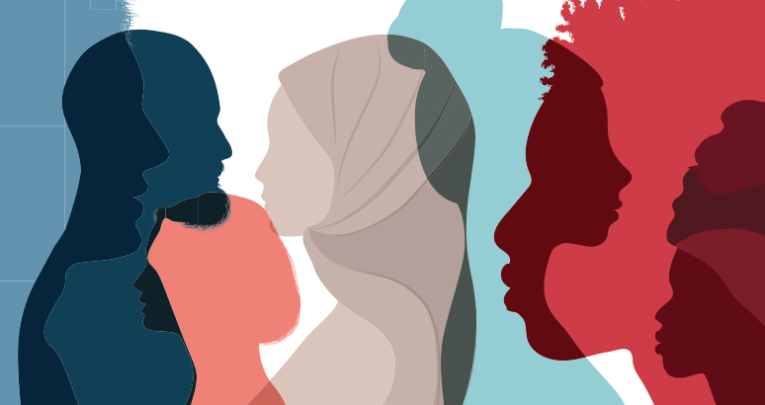
Explore diversity in schools with these practical insights into selecting inclusive texts, fostering a teaching staff that mirrors the varied backgrounds of your students and more…

- by Teachwire
- Classroom expertise and free resources for teachers
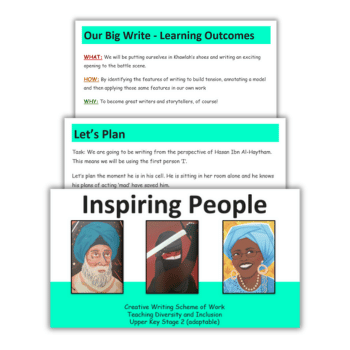
Embracing diversity in schools isn’t just a moral imperative – it’s an educational necessity that enriches the learning experience for every student.
Join us as delve into why fostering inclusivity should be at the heart of every classroom…
Diversity resources for schools
UKS2 scheme of work
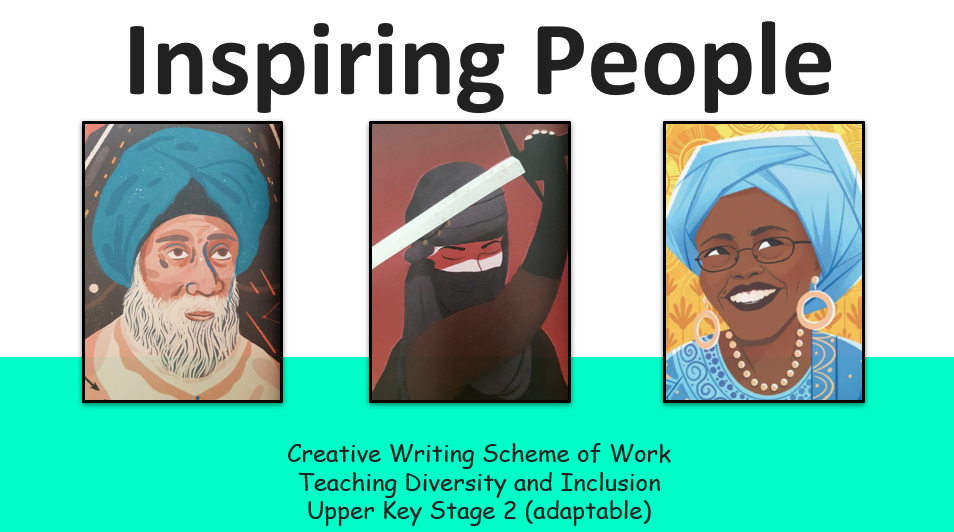
Use this free resource alongside the book Amazing Muslims Who Changed the World to explore modern and historical inspirational figures. Write extended creative writing pieces such as a diary entry, an exciting opening to a story and a monologue.
British Empire and slavery case studies
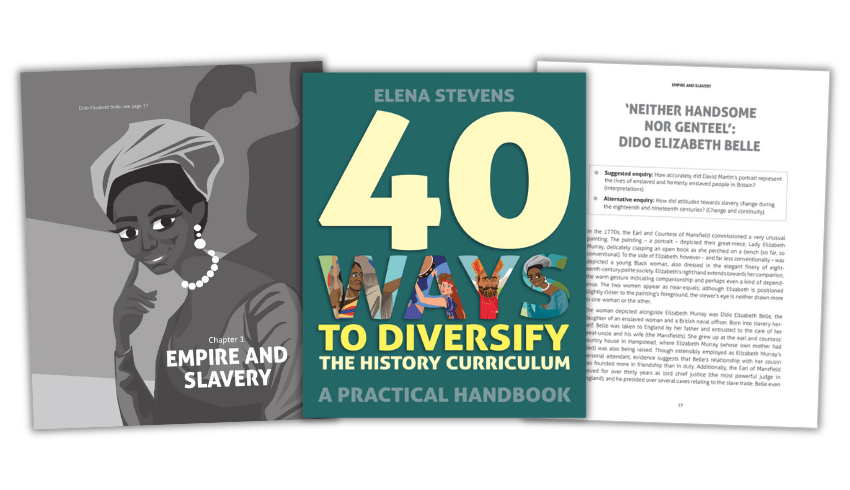
The case studies included in this free download from 40 Ways to Diversify the History Curriculum by Elena Stevens all emphasise the role and agency of enslaved people in bringing about abolition.
Use the case studies and lesson enquiry ideas in secondary history lessons about the British Empire and slavery.
Diversity book list
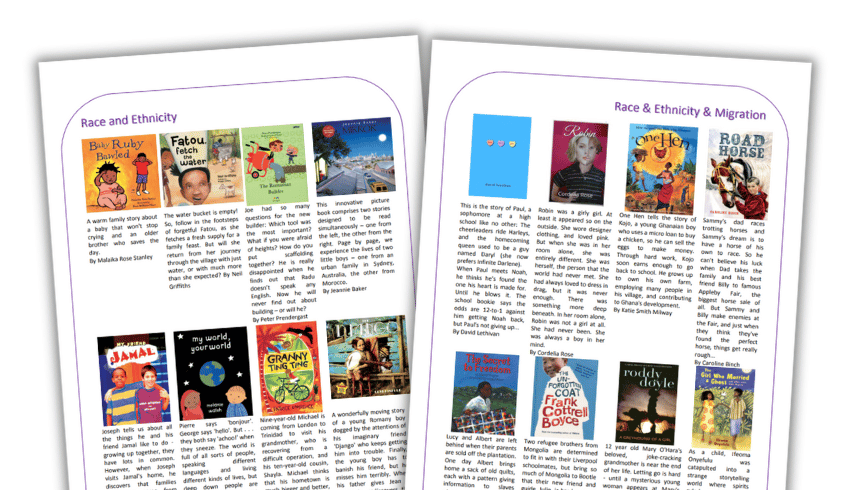
This free PDF from EqualiTeach sets out must-have fiction books which reflect the diversity within classrooms. They’ll teach young people about issues of equality and diversity.
Also from EqualiTeach is this free guidance on dealing with prejudice-related incidents in schools.
Anti-racism KS1 lesson plan
This free anti-racism KS1 lesson plan introduces the topic of racism to students through the picture book Mixed by Arree Chung. The lesson uses drama techniques and art to explore this big and multi-layered topic.
Black British History lesson plan
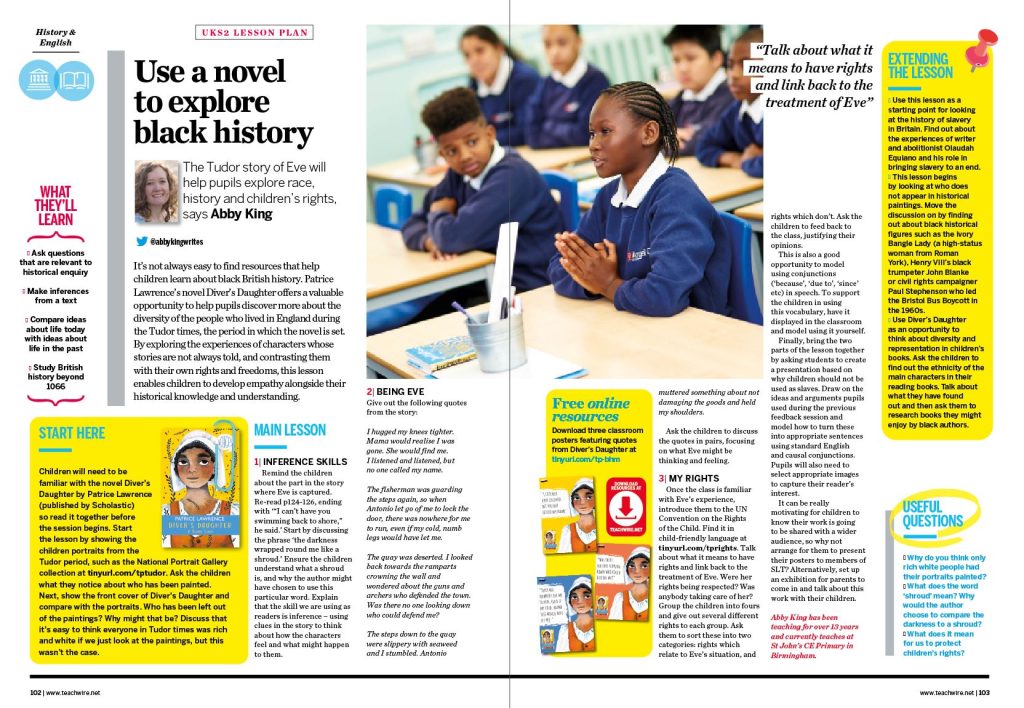
It’s not always easy to find activities that help children learn about black British history. This KS2 lesson plan enables children to develop empathy alongside their historical knowledge and understanding. It’s based around the novel Diver’s Daughter by Patrice Lawrence.
An anti-racist approach to teacher recruitment
Children need and deserve role models who reflect the diverse world around them. This empowers them to become caring individuals who can make informed decisions and challenge the injustices in society.
At Step Academy Trust, we are, therefore, passionate about recruiting and retaining teachers and staff from all backgrounds. This is so we can provide the best possible education for our children and improve the life chances of our pupils, staff and communities.
Anti-racist employer
Equality, diversity and inclusion (EDI) are core to our education mission. Like many people and organisations around the world, we were deeply moved by displays of discrimination globally.
Following the brutal killing of George Floyd in 2020, we set out to review our approach and practices across the Trust. This was to ensure we are doing everything we can to be a truly anti-racist employer and educator.
We first created an anti-racism road map, based on five key strands:
- our Trust’s vision and ethos
- leadership and recruitment
- training and development
- curriculum development
- policies and systems.
Each of our schools is unique, so the road map allowed us to have a united vision whilst tailoring our approach to every community’s culture, beliefs and needs.
- According to findings from the Education Policy Institute (2020) and the latest government data, around 35% of secondary teachers are male (around 15% in primary schools). Around two-thirds of headteachers are female
- Government data from 2019 shows that 85.7% of all teachers (and 92.7% of headteachers) in state-funded schools in England were White British. This is compared to 78.5% of the working age population in the 2011 Census
- Reliable data describing other measures of diversity are difficult to find. A TeacherTapp survey of voting behaviour dating from 2019 showed that out of 3,317 respondents, 56% supported Labour, 14% Conservatives, 13% Lib Dems and 5% Greens
Equal opportunities
Recruitment formed one of the key strands of our strategy. We wanted to make sure that we provide equal opportunities for our candidates and always appoint the best person for the role. This is regardless of background or ethnicity. This, in turn, ensures our pupils receive a high-quality education.
We reviewed and updated our recruitment processes and introduced blind recruitment. This is where you remove all names and protected characteristics from the application forms, ensuring you consider each candidate with a non-biased lens.
To embed this mentality further, we significantly invested in developing leadership behaviour frameworks that champion equality. We also provided staff with unconscious bias training to create a positive and inclusive Trust culture.
Our anti-racism practices also extend beyond the recruitment process. We want candidates to know that we will treat them fairly and support them throughout their careers with us, aiding the retention of staff too.
As such, each school has achieved the Race Charter Mark, developed their anti-racist action plan and appointed a race champion.
EDI remains an agenda item on every board and academy committee meeting. We ensure equal access to career development opportunities.
We’re also decolonising the curriculum, and have even adapted the school lunch menus to reflect the needs of the community.
By implementing a Trust-wide approach to anti-racism that starts at the very beginning of our staff’s journey with us, we provide the role models our pupils need to become responsible and educated citizens of the world.
By Miz Mann, Executive Headteacher at Turnham Academy, part of STEP Academy Trust
The importance of diversifying the English curriculum

English teacher Diane Lee discusses how diversifying her school’s English curriculum has led to amazing student outcomes…

Have you or are you on the journey to diversifying your English curriculum? Recent research from Pearson shows that when considering their use of diverse texts, 45% of English secondary teachers ‘now feel more confident teaching diverse texts than they did before.’ Diversifying your school’s English curriculum is not only imperative but can lead to inspirational lessons, introspective examinations and interesting outcomes. I’m proud to say we have successfully diversified our English curriculum with amazing student outcomes. Let me show you how…
Lit in Colour Pioneer Programme
It’s easy to become comfortable with the familiar, but this way we miss out on new experiences. My school recently moved from one beloved text – An Inspector Calls – to venture into the unknown.
Previously, we hadn’t even considered changing our text. However, when Pearson launched its Lit in Colour Pioneer programme, we firmly decided to dare to do something different.
Pearson’s 2023 School Report found that almost half of all English teachers ‘shared their belief that the subject should be evolved to better reflect the modern world and its people’.
64% of students agreed that they ‘learn better if they see people like them/from their background reflected in what they learn at school.’
Teaching is not just academic. We can assist young people in becoming emotionally literate, competent and compassionate by sharing our own gut-wrenching stories of unfairness or injustice and encouraging them to do the same.
Within a classroom, through the discussions you have, the texts you read, the creative writing tasks you set and the classroom activities you hold, English lessons can develop children and young people more than they think.
New lens
What books are you reading with your class? The same as always? I am the first to appreciate that not all schools have the luxury to make changes to their curriculum due to budget, resources or even an unwillingness to let go of the familiar.
But the latter, especially, can also be your danger zone. Don’t confuse familiarity with safety. Safety for whom? For you, the educator, maybe, but not for your students, ultimately.
Teaching a text year in, year out, can dull your senses to the different ways of seeing and teaching the themes, context, plot events and the nuances of characters. I know; I have been there. But you can approach each text from a fresh vantage point.
“Don’t confuse familiarity with safety”
Seeing an old text through a new lens can add a richness and, dare I say it, a more compassionate view of the characters and the text as a whole. Try studying Shakespeare but seek out more modern adaptations or study texts critically looking at characters through an intersectional lens.
When teaching Othello, for example, research new lectures, resources and critical ideas on a variety of media platforms which can assist in your planning and teaching of the text.
At the same time, tap into resources and materials from renowned institutions such as King’s College London and the Globe Theatre. These can only enhance, enrich and expand your students’ educational experience.
Changing to Refugee Boy
Conversely, if you are able to make the switch and choose different texts, then go for it. By being part of the Lit in Colour programme we are fortunate to receive free set texts by writers of colour.
This allowed us to retire a long-taught GCSE text and introduce a fresh, more relatable story. This was the play adaption of Benjamin Zephaniah’s Refugee Boy by Lemn Sissay.
In a predominantly white student population school in Suffolk, making this change was important to us. It also allowed us to introduce our students to a text in which the protagonist has been treated unfairly.
Did our students more readily identify with the unfair treatment because it resonates and connects with their own experiences? The answer is an emphatic and resounding ‘yes’.
Fostering compassion
The change in text has also fostered compassion on numerous occasions. While teaching context alongside the text, my class watched a powerful video on the refugee experience, and another on ‘What they took with them’, featuring a poem read by famous actors.
This led to a discussion about what they had seen. What would they take with them if they had to leave their home suddenly and flee persecution, conflict or war? From there, we did an imaginative writing activity.
I can honestly say that what my Year 10s wrote that day truly demonstrated that they ‘understood the assignment.’
As the CLPE’s Reflecting Realities report (2020) notes: ‘‘As human beings, there are some key universal similarities that bind us but there are also key distinctions in our lived experiences. A book can serve as a stimulus for exploring points of difference, providing recognition and affirmation for readers who can identify and provide invaluable insight for those who may not.”
Walking my students through learning opportunities, actively encouraging them to put themselves in the place of a character they are studying is vital.
Empathy
Successfully teaching and creating moments to develop students’ empathic skills is so much more than explicitly stating that is what you are doing.
Theodore Roosevelt once stated, “No one will care how much you know until they know how much you care.” As an educator who desires to prepare their students to be global citizens, I am sure you model the type of behaviour you wish to see in your students: caring, compassionate and empathetic.
Thus, as you pass on the invisible empathy baton to your students, they in turn will grab it with both hands and run their own race on the path set before them. Their lives will stretch far beyond your classroom. Hopefully that same baton will be perpetually passed on.
“As you pass on the invisible empathy baton to your students, they in turn will grab it with both hands”
Never forget: you are the curator of your class’s compassion, comprehension and empathy through another’s person’s reality and lived experience.
You are in a powerful position to invite your students to literally and metaphorically sit at a table where you have invited others who may not look like them or have similar life experiences. You can do this every time you introduce them to characters who are not like them.
True inclusion
True inclusion ensures that you are intentional about pulling out a seat at the table. When you do that, you are demonstrating that you want everyone to feel as though they are welcome and that they belong.
We see the acronym ‘EDI’ (equality, diversity and inclusion) everywhere. As Stormzy said in 2022, don’t just use diversity as a buzzword. “Whatever position you’re in, whatever role you play, [try to be] a driving factor for [diversity] and not just see it as a quota or as a box to tick.”
Conclusion
Pearson reports that almost eight in ten English teachers in secondary schools have diversified their texts in the past three years. More than a third reported increased student engagement and more enjoyable lessons as a direct result. What’s stopping you?
- Teach diverse and topical texts which students can connect with, such as the play adaptation of Refugee Boy by Lemn Sissay.
- Look at more traditional texts through a different lens. Check out The Shakespeare Centre London.
- Be willing to sit with discomfort, understanding that students may be sitting in discomfort beneath your very gaze.
- Have uncomfortable and vulnerable conversations with colleagues about what you know, don’t know and about what you need to learn.
- Commit to meaningful CPD which can help you become more insightful.
- If working with children who are forcibly displaced or children who have experienced trauma, try the ‘Healing Classroom’ approach. This is free, trauma-informed training delivered by the International Rescue Committee.
- Keep an eye out for commemorating calendar days like Windrush Day, but don’t limit your activity to just these days!
Diane Lee is an English teacher at Stowmarket High School in Suffolk. The school is part of Pearson’s Lit in Colour Pioneers Programme. This supports schools to develop a more diverse English Literature curriculum through free access to set texts, a library donation of 300 books and responsive and informed training.
Making your history lessons diverse
If we’re to teach a history that’s true to our past while speaking to today’s students, then the stories we draw on should be as diverse as possible, says Elena Stevens…
In 2010, Michael Gove’s espousal of the ‘island story’ sought to move the history curriculum in a rather exclusionist, self-congratulatory direction.
As Secretary of State for Education, Gove argued that the existing history curriculum denied pupils the opportunity to learn “One of the most inspiring stories I know – the history of our United Kingdom”.
Though Gove’s draft curriculum was hewn of some of its more jingoistic overtones, the final 2013 curriculum nevertheless prescribed a diet composed largely of British history.
It made reference to a ‘significant society or issue in world history’. But this seems to have been envisaged as something of an adjunct to the more coherent history of ‘these islands’ from ‘the earliest times to the present day’.
Illuminating complexity
Pupils do, of course, need to develop an understanding of the societies in which they live. It is important that history lessons help young people to gain a sense of place, and to appreciate the social, political and cultural forces that shape modern British life.
However, two aspects of Gove’s vision are problematic. The first is the notion that the history of our United Kingdom and world history are distinct from one another.
The story of Britain is the story of movement, heterogeneity and integration. Britain has been shaped by successive invasions and migrations. Different peoples have coexisted for hundreds, if not thousands, of years. British history is world history.
“The story of Britain is the story of movement, heterogeneity and integration”
Secondly, Gove presumes that ‘our island story’ is one that ought to ‘inspire’ pupils, with its litany of heroic characters conceived as contemporary role models.
In reality, the history of Britain and British people is much more complicated. It is punctuated with stories of exploitation, violence, corruption and rejection.
It is also strewn with complex individuals, whose lives cannot be taken to exemplify a certain theme, idea or experience. People in the past did not exist simply to stand for one thing or another. It does a disservice to these people’s lives (and to the discipline of history) if we reduce them to archetypes or caricatures.
The best history is history that illuminates the complexity of the past.
Shifting understanding
History is an exciting, dynamic discipline. New evidence and interpretation can offer up perspectives that shift our understanding, or make us think about events, people or ideas in new ways.
The same is true of history teaching. If our lessons can expose pupils to new histories – or even shed new light on histories with which young people have become familiar by the time they enter our classrooms – then we have gone some way towards exposing the complexity of history.
The Swann Report of 1985 summed up this mission well, commenting on the education of children from minority ethnic backgrounds.
The report concluded that education ought to represent “Something more than the reinforcement of the beliefs, values and identity which each child brings to school.”
History lessons can serve a vital role in challenging preconceived ideas about people in both the past and the present. It can equip young people to combat deeper and more problematic misconceptions.
A decolonising project
The events of 2020 and 2021 underlined the importance of challenging received histories of Empire, slavery, abolition and race, in particular.
The murder of George Floyd by a police officer in Minneapolis, Minnesota in May 2020 sparked global outrage and inspired a wave of activism.
In the UK, a number of protestors tore down or defaced several statues dedicated to individuals who had links to the slave trade.
In the wake of these activities, schools were urged to rethink the manner in which certain histories were delivered.
The notion of decolonising the curriculum (already established as an area of focus within university and academic circles) was popularised.
Twitter became awash with initiatives and inspiration for rethinking the manner in which British schools delivered Black history.
For me, the most important message to come out of these initiatives has been letting certain stories or histories lead lessons and activities.
It is not simply a case of inserting a Black abolitionist campaigner into a scheme of work on the abolition movement, or a female scientist into an enquiry on the development of modern medicine.
Truly diverse, decolonised history is not built on tokenistic reference to marginalised individuals simply for the sake of it.
Doing so would only underline the impression that certain identities are peripheral to the story of British life and society.
“Truly diverse, decolonised history is not built on tokenistic reference to marginalised individuals simply for the sake of it”
Instead, the decolonising project has taught us that we best serve these histories – as well as our pupils – when we incorporate the experiences of overlooked individuals into the main narrative, allowing these individuals’ stories to alter this narrative, if necessary.
Multidirectional history
Quoting the work of Michael Rothberg, history teacher and school leader Nick Dennis has referred to this as ‘multidirectional’ history.
Rather than viewing Black history as “Separate, superficial and distracting from the real history that needs to be taught”, the approach involves constant reappraisal, renegotiation and cross-referencing of the past.
This facilitates greater creativity and complexity when planning and replanning schemes of work.
Making room for stories
The same is true of women’s history and histories of gender and sexuality. It is important to avoid creating the impression that the experiences of women, for example, were (or are) necessarily distinct simply because of their gender.
Or that it is only relevant to explore the lives of women through certain historical prisms (like social and domestic history, for example).
If we want to lay claim to a truly diverse curriculum, we need to make room for stories that move beyond the traditional focus on heroes, conquerors and pioneers.
“We need to make room for stories that move beyond the traditional focus on heroes, conquerors and pioneers”
Instead, we need to explore the real, lived experiences of a whole range of individuals. Fundamentally, we also need to emphasise the value of these kinds of stories, encouraging pupils to conceive of history in the broadest possible terms.
By adopting such an approach, pupils will begin to recognise themselves in the people of the past. This will prove invaluable in the process of identity construction in the present.
Elena Stevens is a secondary school history teacher. This article is based on an abridged extract from her book, 40 Ways to Diversify the History Curriculum (£16.99, Crown House Publishing).
Why we need to teach tolerance and diversity in schools as early as possible
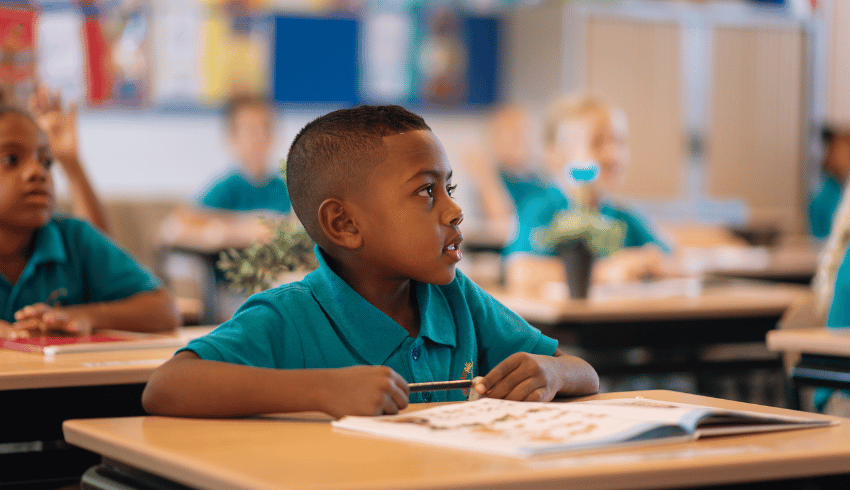
Teachers have a vital role to play in combating racism by teaching children about cultural diversity in schools as soon as they can, says Wa’qaar A Mirza…
What age is too young to teach children about race and diversity in school? Four? Five? Six? The answer, quite simply, is that it’s never too early to educate children on this topic.
The UK is a multicultural place. This means that children often have exposure to a wealth of diverse and cultural backgrounds before they even reach the classroom.
Let’s not forget that babies notice differences in skin colour and hair types. Children as young as four start to learn stereotypes about themselves and others.
As soon as children start to become aware of cultural differences (and before they are exposed to negative stereotypes) we should be appropriately educating them on the importance of cultural diversity in schools.
“Children as young as four start to learn stereotypes about themselves and others”
This will give them a well-rounded and balanced view on ethnicities, cultures, skin colours and more. This means they’ll have counter-arguments against racism from the get-go.
Racism in schools
It’s important to note that not all children will have had exposure to cultural diversity before starting school. Some parents don’t have the resources or understanding to teach this topic at home.
Racist attitudes develop at a very young age and often start at home. Indeed, according to BBC news, over the last decade there’s been a 40% rise in primary school exclusions for racism.
This reiterates the importance of teaching children about diversity in school and accepting multiculturalism as a positive aspect of life as early as possible.
Through educating children to see others as equals with differences, valuable lessons are learnt. These act as a preventative measure to displays of racism and stereotyping.
Multiculturalism and diversity in schools
Educating pupils about a variety of cultures brings many other benefits.
Creating an inclusive classroom environment where everyone feels comfortable and equal can help build confidence. It encourages pupils to participate in group settings, answer questions and ask for help. All of this can help them to achieve academically.
Children who learn about diversity and cultural awareness have better social skills, increased confidence and are often more accepting of people who are different from themselves (read the University of Nebraska’s Culture Matters report).
In the process of teaching diversity in schools, you’ll be helping pupils to develop a multitude of valuable attitudes and transferable skills such as acceptance, inclusion and equality.
In turn, this will hopefully help tackle problems like racism, Islamophobia, sexism and homophobia.
Teaching diversity in schools
According to the Home Office, race hate crimes went up by 11% in 2019 compared to the year before.
Providing early cultural diversity education to children whose personality traits and attitudes are still developing could be a potential solution to discrimination and this rise in hate crimes aimed towards minorities in the UK.
Educating children in diversity increases creativity, encourages open-mindedness and provides a wealth of opportunities. It lays down the foundations for an inclusive society that embraces differences.
This education needs to start at primary school so children can reap the benefits and grow to be part of a more inclusive generation.
“Educating children in diversity increases creativity, encourages open-mindedness and provides a wealth of opportunities”
Diversity in popular culture
Children’s television programming is incredibly influential and digestible to children at this impressionable age.
However, a majority of shows still fail to show truly diverse content, instead showcasing diversity in tokenistic forms, such as using different coloured animals, rather than featuring authentic, complex human characters of varying race, religion, sexual orientations and other backgrounds.
This is the reason I created Zayn and Zayna’s Little Farm, an animation featuring a Muslim family who go on fun adventures around their family farm and multicultural neighbourhood.
The show aims to teach children about diversity, inclusion and sustainability through fun, relatable characters.
However, until shows like this are featured on popular mainstream channels there is limited exposure, which again highlights the importance of cultural diversity education at school.
Providing pupils with a valuable counter-argument to negative stereotyping they could learn from the media or those around them at home is so important.
Without a greater push to change the current representation of minorities in the media or encourage parents to teach diversity at home, this all-important responsibility falls to indispensable primary educators.
Yours is a vital role that will allow future generations to feel accepted, valued, respected and equally represented.
Wa’qaar A Mirza is global CEO of Safi Ideas and Safi Productions. He has worked in programme making for National Geographic and the Discovery Channel. Zayn and Zayna’s Little Farm is an animated show dedicated to teaching inclusive ideas, kindness, mindfulness and community.
A letter to white teachers
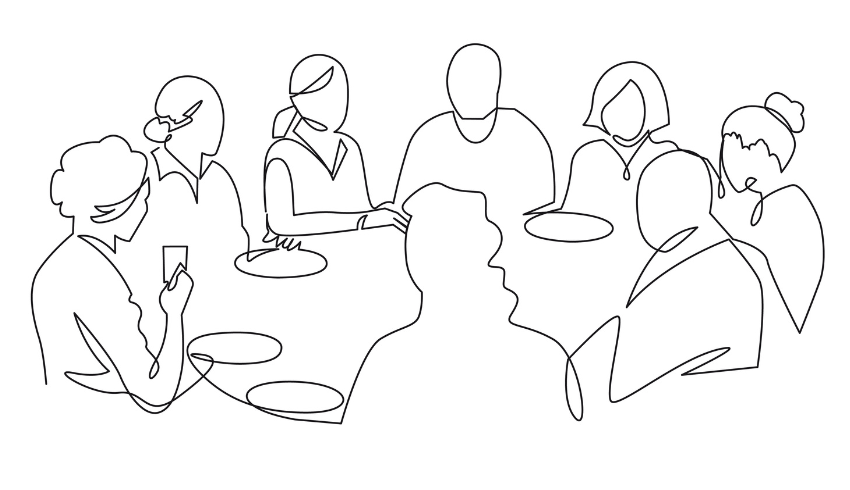
Do all your colleagues feel accepted and equal at school? Take a little time to give it some thought, says ex-teacher turned writer Jeffrey Boakye…
When I started teacher training back in 2007, I was the only black student on my course.
Armed with a tweed blazer, leather satchel and head full of bright ideas, I wasn’t going to let my minority status get in the way of making a difference – it was going to be just like the recruitment campaigns said it would be.
But looking back now, there are conversations that I think I would have benefitted from, and that would have helped me in my journey to the classroom.
I’m talking about my blackness. How refreshing it would have been for my racial identity to be acknowledged, considering how much of an anomaly it made me at the time. What I needed was recognition of my identity in full, especially the so-called marginalised parts.
Recognising lived experiences
We all need this kind of recognition. Sixteen years after I first stepped up to the whiteboard, I now visit schools and meet teachers across the country. It’s a community of my peers, like you, if you are a teacher reading right now.
One recurring theme is the responsibility held by schools and the wider educational system to celebrate identity and recognise lived experiences, plural, from our various and differing perspectives.
It sounds obvious, but many (maybe all) of us have parts of our identity that can be side-lined by dominant society, be it ethnic heritage, race, sexuality, disability or unspoken trauma, to list just a few examples.
Diversity in schools
It’s not controversial to suggest that every sector needs to be inclusive, but what does that really mean? A useful metaphor is that of the host of a dinner party; because there’s a huge difference between the host who neglects to consider the needs of their guests, and the host who actively builds those needs into the evening’s shared experience.
At its best, inclusion is this process of welcoming the whole person out of the margins and into the centre. As a teacher marginalised by race, I know what it’s like to be the ‘guest’.
“It’s not controversial to suggest that every sector needs to be inclusive”
And in terms of my black identity, I initially did what any good guest fearing for their safety in an unknown context would do: I left it at the door. I kept a low profile. I decided not to say anything that might upset the host and lead to me being thrown out. Assimilation as survival.
Teachers who are racialised as white will never have to leave their racial identity at the door in order to survive the system. Their safety within dominant society is not jeopardised by the colour of their skin.
This is a fact of how white supremacy has been constructed in modern western society, in the exact same way that my maleness will never be a problem in a sexist patriarchy, and my heterosexuality will never be questioned in a homophobic context.
Equally, my Britishness means that I will never be a ‘foreigner’, while my able-bodiedness allows me to live freely without any issues of accessibility.
For white teachers, the task becomes recognising how whiteness aligns you to social dominance that you didn’t ask for. Whiteness will always make you welcome and comfortable – so much so that you might not have spent any real time thinking about it at all.
“For white teachers, the task becomes recognising how whiteness aligns you to social dominance that you didn’t ask for”
White supremacy
In a profound sense, the modern West is built out of values that are inextricably tied to white supremacy, seeded way back in the 17th century for reasons of colonialism, European imperialism and global economic exploitation.
We can see this echoed in the curriculum, which historically fails to include narratives outside of a white, western, European paradigm.
It’s not about feeling guilt or shame. None of us designed this society or its structures. But education provides an opportunity to address structural inequality and seek truth.
“The modern West is built out of values that are inextricably tied to white supremacy”
Over 90 per cent of current UK teachers are white and British; we can’t allow for blind-spots regarding the history of race politics.
With disproportionate exclusion rates, higher levels of stop and search, attainment bias and discrimination that can sit at policy level and beyond, racism is a safeguarding issue. And safeguarding, as you know, is a shared responsibility.
So, challenge the curriculum. Disrupt the party. Question the hosts and seek a greater breadth of representation within your specialism.
If it helps, start with what you notice from the perspective of your most marginalised identity, then consider how these insights might illuminate your approach overall.
If you can do that, then you might be able to do the same thing from perspectives outside of your lived experience too, creating empathy in a system that can so often pull in the opposite direction.
Jeffrey Boakye is an ex-teacher turned writer, speaker, broadcaster and educator, with a particular interest in issues surrounding race, masculinity, education and popular culture. His books include Musical World, Kofi and the Rap Battle Summer and I Heard What You Said.










